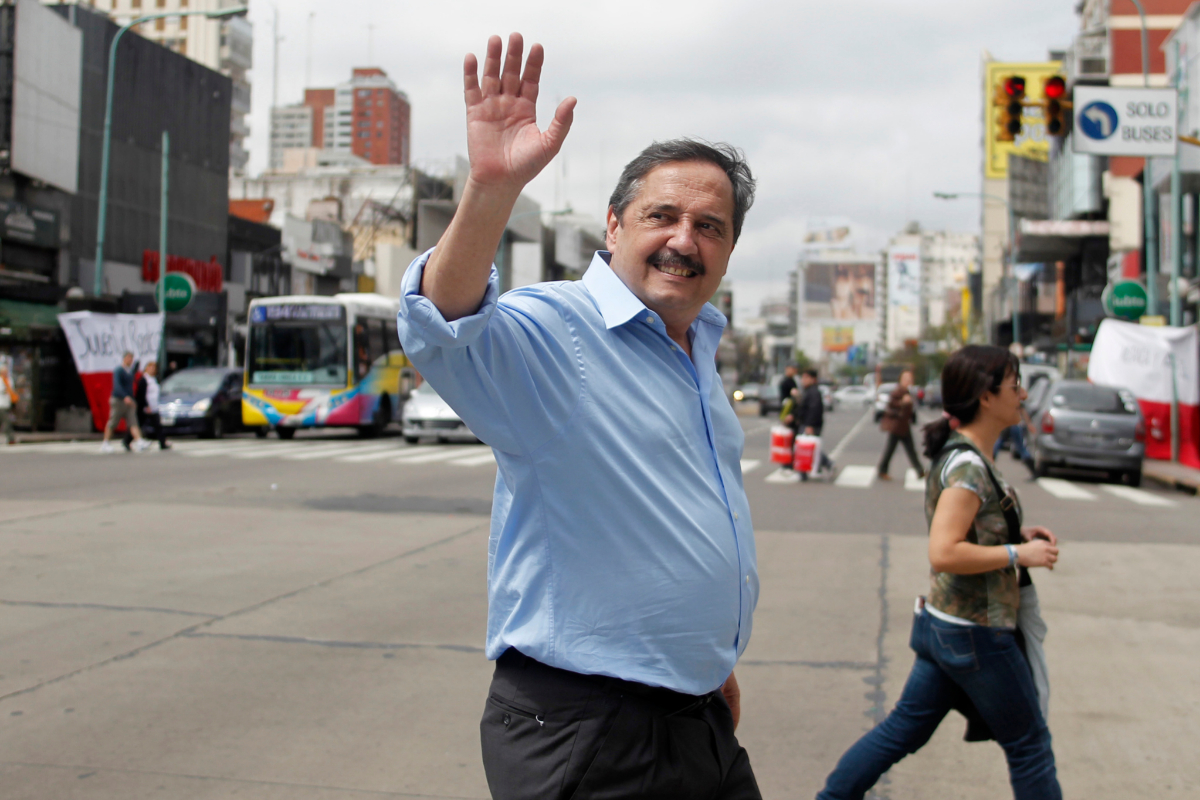- Venezuela.Pedro Sánchez completes his approach to Nicolás Maduro outside the EU
- Newspaper Archive: Raúl Alfonsín's son is emerging as a presidential candidate in 2011
- Obituary: Raúl Alfonsín, key piece of the Argentine Transition
The Argentine president, Alberto Fernández, will send Ricardo Alfonsín in Madrid in the next few weeks as ambassador to Spain. The decision to give such an important position to the son of Raúl Alfonsín , president of Argentina between 1983 and 1989 and father of Argentine democracy, has internal readings as a way to hit the opposition - to which Alfonsín belongs - but also an external one very important, since it is a signal for Venezuela.
Pedro Sánchez, who has promoted a turn to the Spanish position regarding the Chavista regime, knows that he has an ally in Alberto Fernández in this matter. Alfonsín's son will be in charge of oiling that link and the strategy of both governments.
"We want to show that this is not a government of extremes, nor populist, and what better way to send to Spain an opposition leader, a man with a historical surname of Argentine democracy," a source of daily access told EL MUNDO to the Argentine Foreign Minister, Felipe Solá .
The ambassador for the last four years in Madrid has been Ramón Puerta , a Peronist leader sent by the previous Government of Mauricio Macri. Now his position will be taken by a radical. Carlos Bettini , ambassador during the 12 years of Kirchnerism (2003-2015) and Cristina Kirchner's candidate to take office, saw how the position was in the hands of Alfonsín's son by Fernandez's decision.
Although far from reaching the political stature of his father, Alfonsin Jr. was a national deputy and a candidate for the presidency in 2011. He was third, with 11% of the votes, razed by 54% of Cristina Kirchner, now vice president of Fernandez. Ricardo is physically a carbon copy of Raúl and today he is distanced from his party, which he accuses of putting the new Peronist president on the wheel.
"This government has to handle itself without resources, without money and even in the opposition they react as if they don't want things to be fixed," he says.
Raul's heir
Alfonsín, 68, without diplomatic experience, recalled that his father, who died in 2009, "represented the [Argentine] State in the political dialogue in Venezuela during the presidencies of Eduardo Duhalde and Néstor Kirchner ", between 2002 and 2007. "Y he was still radical for doing what any man with a sense of state would have done, "he added.
The conversations he had with his father are probably useful to Alfonsin for the mission in Madrid. The Governments of Sánchez and Fernández maintain a similar position towards the Venezuelan regime: they believe that Nicolás Maduro is an essential interlocutor.
Buenos Aires no longer recognizes Juan Guaidó as president in charge of Venezuela. Spain, officially, yes, although Pedro Sánchez himself recently reduced him in a parliamentary intervention to "opposition leader".
"We do not recognize the Government of Guaidó," said the Argentine Foreign Minister. "We don't like how Maduro rules, but that's why we're not going to stop recognizing that it's a government that was born in democracy and that later became authoritarian. Winning or losing has to be resolved at the polls."
When Solá made these statements, Argentina had already withdrawn the credentials to the ambassador appointed by Guaidó. In a dialogue with EL MUNDO, front-line sources from the Foreign Ministry expanded the country's position. "In Venezuela we want to mediate, we want to work with the Contact Group. And it is true that there is a shared vision there with Spain."
Mediator of the conflict with Venezuela
According to the newspaper Clarín , "the Argentine Government directly involved in the Venezuelan crisis in a mediation with the Administration of the Peruvian Martín Vizcarra and the Canadian Justin Trudeau, " which in turn dealt with the matter with Cuba.
The possibility that Argentina and Spain join forces as mediators is, strikingly, a point of coincidence between the two men who claim power in Caracas. Maduro called last week to create a group of "friendly countries" to "strengthen democracy" in Venezuela and opened the door to a bilateral dialogue with the United States.
According to Maduro, the governments of Spain, Mexico, Panama and Argentina, as well as the EU, were informed. Guaidó, who is well aware of the differences between Fernández and his vice president, Cristina Kirchner, very close to Maduro and Havana, believes that the position of Buenos Aires can help him in his goals.
"I am sure that Argentina can help the dictatorship understand that the only alternative it has is to generate guarantees for a really free presidential election. So I think that Argentina's role could be key to at some point unlock the game." .
That will be discussed in the coming weeks in Madrid, with Ricardo Alfonsín as a close interlocutor.
According to the criteria of The Trust Project
Know more- Argentina
- Spain
- Venezuela
- Pedro Sanchez
- Alberto Fernandez
- Nicolás Maduro
- Mauricio Macri
- Juan Guaidó
VenezuelaThe PP will force the Government to portray itself by voting on a motion that confirms the legitimacy of Juan Guaidó
Latin America Lacalle Pou assumes the Presidency of Uruguay marking distances with Venezuela
Venezuela Pedro Sánchez concludes his approach to Nicolás Maduro outside the EU

